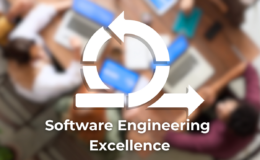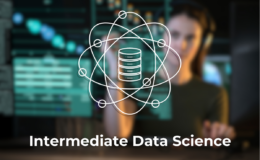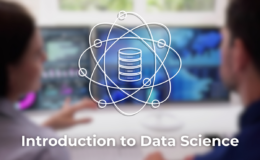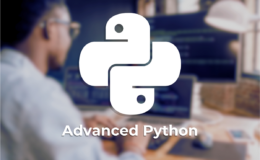
Description
This three-day class covers topics tested in the PCEP-30-02 exam. The five modules in this course include lecture and multiple labs per module. At the end of this course, students will have the knowledge required to take and pass the Certified Entry-Level Python Programmer Certification.
Audience
This course is designed for those looking for an introduction into programming with python and computational thinking.
Prerequisites
- This course is for programming beginners, no prerequisites are required
Objectives
Five Core Concepts, including syntax, loops, and Python Data Structures
-
- Gain a comprehensive understanding of Python programming fundamentals, including syntax, data types, operators, and input/output operations.
- Acquire the ability to implement control flow structures such as conditional statements and loops effectively, enabling precise control over program execution.
- Learn to work with various Python data structures such as lists, tuples, dictionaries, and strings to store, manipulate, and retrieve data efficiently.
- Gain proficiency in defining and utilizing functions to modularize code, promote code reuse, and enhance code maintainability.
- Develop skills in recognizing, handling, and managing errors and exceptions gracefully in Python programs, ensuring robustness and reliability in software development.
Outline
Module 1: Python and Programming Fundamentals
-
- Programming Terms and Definitions
- Python’s Logic and Structure
- Literals, Variables, and Numeral Systems
- Operators and Data Types
- Input and Output Console Operations
Module 2: Control Flow
-
- Conditional Statements
- Iterations
Module 3: Collections
-
- Lists
- Tuples
- Dictionaries
- Strings
Module 4: Functions
-
- User-Defined Functions and Generators
- Parameters and Arguments
- Scope
- Variable Shadowing
Module 5: Exceptions
-
- Built-In Exceptions
- Exception Hierarchy
- Exception Handling
Module 6: Exam Review
-
- Practice Reading and Analyzing Code Snippets
- Common Exam-Type Questions
- Practice Exams
Have Questions? Want to learn more? We’d love to talk to you!
No Fields Found.- This course is for programming beginners, no prerequisites are required
Objectives
Five Core Concepts, including syntax, loops, and Python Data Structures
-
- Gain a comprehensive understanding of Python programming fundamentals, including syntax, data types, operators, and input/output operations.
- Acquire the ability to implement control flow structures such as conditional statements and loops effectively, enabling precise control over program execution.
- Learn to work with various Python data structures such as lists, tuples, dictionaries, and strings to store, manipulate, and retrieve data efficiently.
- Gain proficiency in defining and utilizing functions to modularize code, promote code reuse, and enhance code maintainability.
- Develop skills in recognizing, handling, and managing errors and exceptions gracefully in Python programs, ensuring robustness and reliability in software development.
Outline
Module 1: Python and Programming Fundamentals
-
- Programming Terms and Definitions
- Python’s Logic and Structure
- Literals, Variables, and Numeral Systems
- Operators and Data Types
- Input and Output Console Operations
Module 2: Control Flow
-
- Conditional Statements
- Iterations
Module 3: Collections
-
- Lists
- Tuples
- Dictionaries
- Strings
Module 4: Functions
-
- User-Defined Functions and Generators
- Parameters and Arguments
- Scope
- Variable Shadowing
Module 5: Exceptions
-
- Built-In Exceptions
- Exception Hierarchy
- Exception Handling
Module 6: Exam Review
-
- Practice Reading and Analyzing Code Snippets
- Common Exam-Type Questions
- Practice Exams






Leave a Comment